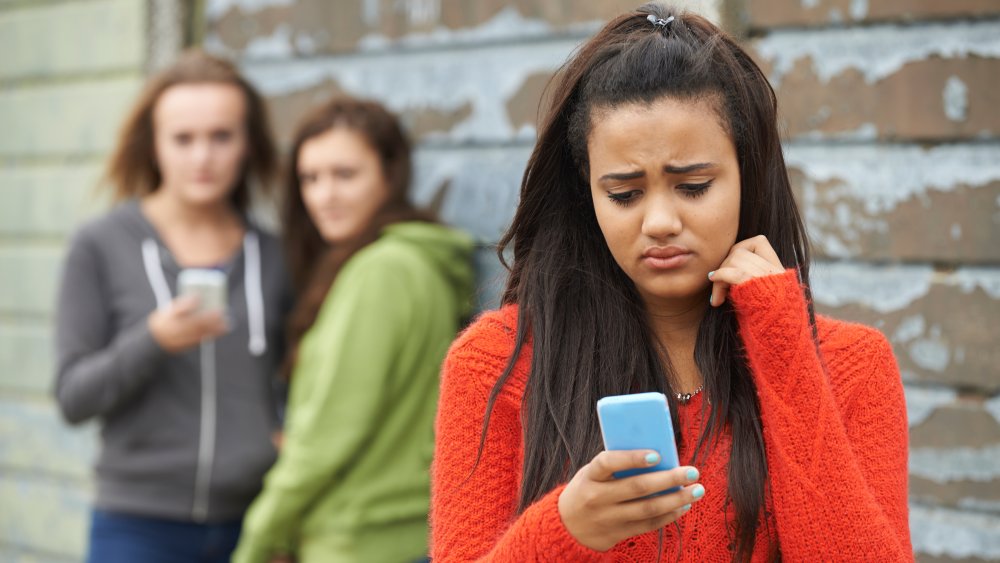Here's How To Overcome Texting Anxiety
If you tense up whenever your friend takes too long to respond, or if you find it hard to focus on anything you're doing after your crush one-word-replies you, you may be suffering from "texting anxiety." As psychologist Forrest Talley, PhD explained to Southern Living, texting anxiety is "the distress some people experience when waiting for a reply from a text that they have sent, or the distress related to a text that has been received that raises unexpected questions/concerns." So what's the problem with getting a little stressed about texting? "This anxiety adds to one's daily stress, is a distraction, and frequently leads people to spend unnecessary time attempting to resolve the tension that has now arisen."
Sound pseudo-science-y? The connection between tech use and distress is very real. The American Psychological Association found that people who check their phones constantly experience significantly higher stress levels. As Lynn Bufka, PhD, APA's associate executive director, put it, "While technology helps us in many ways, being constantly connected can have a negative impact on both [our] physical and mental health."
Ways to help ease texting anxiety
If you have texting anxiety, and you're not ready to throw your phone in a river and start giving everyone a fake phone number, it may be time to set coping strategies in place. Talley suggests setting up an auto reply that tells people you'll get back to them at the end of the day. This can free you from feeling like you have to respond to everything right away. He also suggests, when you're sending a high-pressure text, explicitly letting people know that it's okay to respond later, so you don't have to wonder why they're taking so long.
Bufka recommends taking a so-called "digital detox," unplugging for a while to recharge. "Constant checkers could benefit from limiting their use of technology and presence on social media," she said, to help foster a "healthy relationship with technology." An auto reply can come in handy there, too — one that informs everyone that you'll get back to them after your technology break. After all, your phone should be a useful tool for connecting with the people you care about, not a constant source of stress.
Of course, if your anxiety goes beyond just texting, or if it's so bad that it's interfering with your daily activities, you may need more than a couple of quick fixes. Consider consulting your local medical authority, seeking out a mental health professional, and/or calling the Substance Abuse and Mental Health Services Administration's National Helpline at 1-800-662-HELP (4357).

